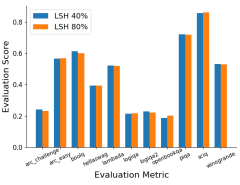Authors: Jan Simson, Florian Pfisterer, Christoph Kern
Published on: August 31, 2023
Impact Score: 8.12
Arxiv code: Arxiv:2308.16681
Summary
- What is new: Introduction of multiverse analysis for algorithmic fairness, turning implicit design and evaluation decisions into explicit ones to understand their impact on fairness.
- Why this is important: Biases in data can be reinforced or mitigated in the algorithmic decision-making process, but it’s often unclear how design and evaluation choices impact fairness.
- What the research proposes: A multiverse analysis method that makes design and evaluation decisions explicit, creates a grid of possible decision combinations (‘universes’), and computes fairness and performance metrics for each to investigate variability and robustness of fairness scores.
- Results: Demonstrated that evaluation decisions can significantly impact fairness metrics, showing the importance of transparent and robust evaluation processes to prevent the manipulation of fairness scores.
Technical Details
Technological frameworks used: Multiverse analysis
Models used: Predictive modeling for public health care coverage
Data used: Data on vulnerable populations for health care coverage prediction
Potential Impact
Healthcare providers, tech companies using ADM systems, policy makers, and fairness auditing services
Want to implement this idea in a business?
We have generated a startup concept here: FairVerse Analytics.



Leave a Reply